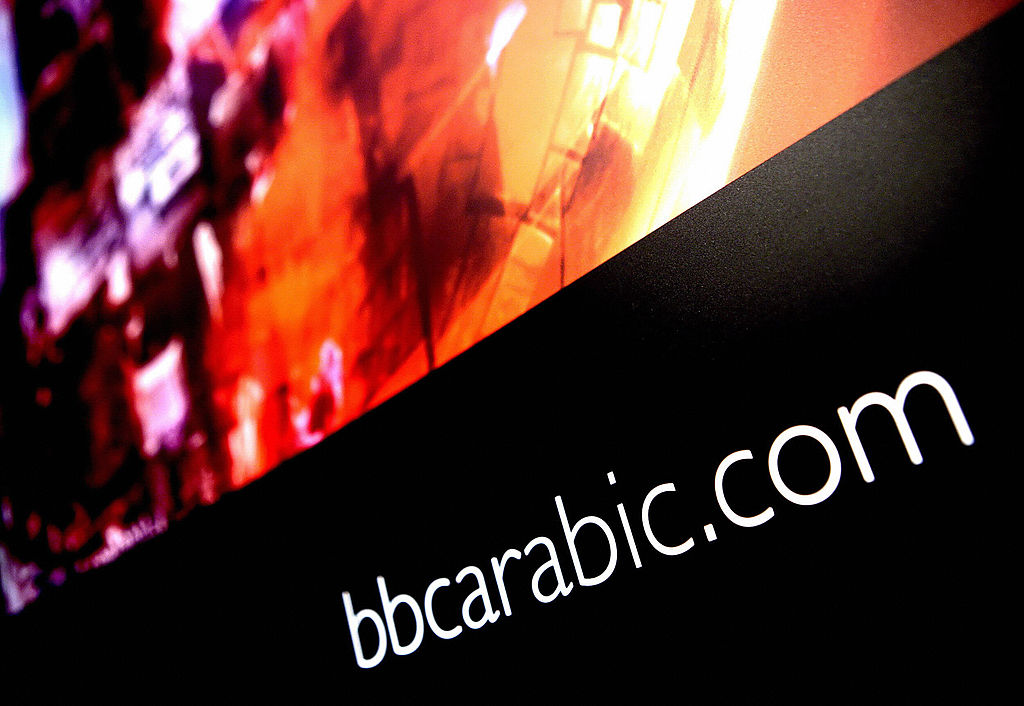It’s easy to forget that your BBC licence fee does not only fund content that you and your family consumes. In addition to the output aimed at domestic audiences, your annual payment of £157.50 funds a host of foreign language services aimed at projecting British impartiality and soft power overseas. The largest of these is BBC Arabic. Launched as a radio station in 1938, it was the first of the BBC’s non-English experiments, and the most successful. Today encompassing television, radio and online, the channel reaches more than 40 million people every week.
That’s both an influential audience and a shedload of British money. So it should come as a cause for concern – if not necessarily surprise – that a Jewish Chronicle investigation has uncovered evidence of shameful and systematic bias at the channel.
The idea for the investigation came after a conversation with an Australian-born Israeli called Arnold Roth, 69, whose teenage daughter Malki was one of 15 people killed by a Palestinian suicide bomber in 2001. The female terrorist who masterminded the attack, Ahlam Tamimi, was released from jail in a prisoner exchange in 2011 and went to live in Jordan, where she became a celebrated media personality.
Last year, BBC Arabic broadcast a fawning interview with the convicted terrorist. Incensed, Roth complained and won an apology from Jamie Angus, head of the World Service. Roth suspected, however, that this was not an aberration but a symptom of a rotten culture at the heart of the licence-fee-funded Arabic channel.
Last year, BBC Arabic broadcast a fawning interview with the convicted terrorist
The investigation appears to confirm this view. In one key finding, it emerged that while BBC English reported on 34 fatal terror attacks on Israeli civilians between 2015 and 2020, the Arabic service covered just 25 of these, seriously downplaying Palestinian violence.
One effect of this, of course, is that Arab-speaking audiences are groomed to react with magnified outrage when Israel mounts a military response, having been blinded to the provocations that caused it.
This is just the tip of the iceberg. In addition, the channel has used Hamas-inspired language, such as calling Jerusalem the ‘occupied city’ and the army the ‘Israeli Occupation Forces’.
A BBC spokesperson said that: ‘BBC Arabic shares exactly the same principles of accuracy and impartiality as BBC News in English, and we strongly reject the suggestion that its impartiality is compromised.’
But the list of worrying charges against BBC Arabic goes on. In one striking development, we discovered that the BBC had acknowledged 25 mistakes in its Arabic coverage of Israel in just over two years, issuing on average nearly one correction a month. Seen in this light, it is difficult to argue that the problem isn’t systematic.
Perhaps the most revealing disclosure was the fact that BBC Arabic employed a journalist who had previously worked for Hezbollah in-house TV channel Al-Manar.
This gets to the heart of the problem. Nobody is suggesting that BBC chiefs are biased. I am a supporter of the BBC in general and the World Service in particular, having broadcast for both many times over the course of my career. The difficulty seems to be that it is hard to keep adequate oversight of local journalists, and impress upon them BBC standards, when you don’t speak their language very well. This allows a subculture to develop within the BBC that abides by its own agenda and norms, rather than those of the BBC charter.
Across the Middle East, Arab countries are making peace with the Jewish state. So far, the UAE, Bahrain, Sudan and Morocco have made the move, with others – including Saudi Arabia – strongly considering joining them. This has created a fresh atmosphere of cordiality in the region, with polls showing that Arab public opinion of Israel is beginning to thaw.
Many Arabic-language outlets, like Dubai-based Al Arabiya, are reflecting this new reality, properly informing the public of the historic change and allowing it to flourish. Sadly, it seems that the BBC – powered as it is by hard-earned cash from ordinary Britons – is standing in the way of this progress.
There can be no doubt that the BBC is a force for good, both at home and overseas. I have the greatest of respect for Jamie Angus and the World Service operation, of which BBC Arabic is a part. But if the corporation is to retain its prestige, swift action must be taken to return the distinguished Arabic service to true impartiality and make proper use of licence-fee-payers’ money.







Comments